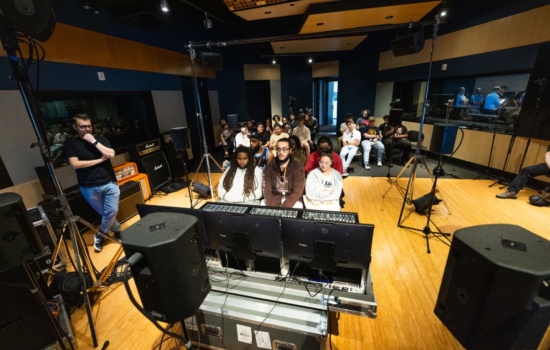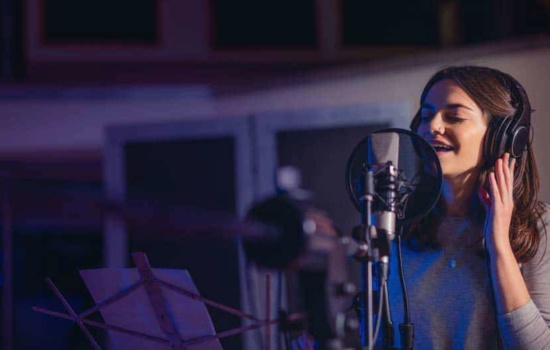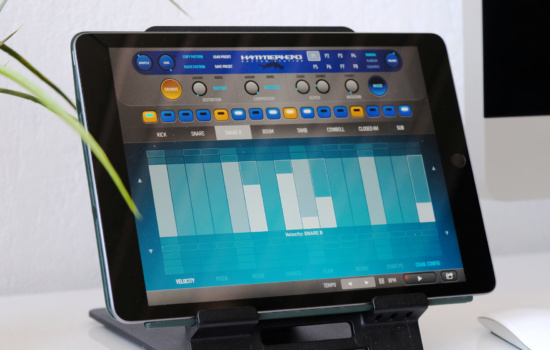Private Instrument Teacher
Career Overview
Music Teachers provide instruction in music performance and theory. They can teach one-on-one or in a group setting. Some Teachers specialize in only one instrument, while others instruct pupils in a range of different instruments.
Alternate Titles
Studio Teacher, Guitar Teacher, Piano Teacher, Vocal Teacher, Instrument Teacher
Avg. Salary
$42,9101
Salary Range
$28K – $66K1

How To Become a Private Instrument Teacher
Career Description
A day on the job for a Music Teacher involves meeting with several pupils to play music, refine their technique, and teach everything from fundamentals like scales and chords to more advanced music theory. Music Teachers at Elementary, Middle, and High School often also teach Choir, Orchestra or Band, as well.
Private Music Teachers can either work out of a rented studio at a music school or out of their own homes. Depending on the client and the hourly rate charged, some teachers will also travel to students’ homes.
School Music Teachers usually work off of a lesson plan and curriculum, whereas Private Music Teachers must adapt their lessons to individual student’s interests and area that need improvement. Piano Teacher Margie Balter says that the most important part of her work is “helping them get fired up to learn stuff” and that the skills taught in her lessons are essential “for life as well as music.” Want to learn more about the experience of teaching music? Check out our blog.
Salary
On average, Music Teachers earn approximately $43,000 annually. The salary range for Music Teachers runs from $28,000 to $66,000.
Music Teachers in the K-12 system are usually salaried employees. Teachers who give individual lessons are paid by the students themselves, often receiving payment for a month at a time. Lesson times are generally 30 minutes to an hour, with the average hourly wage for Private Teachers around $50/hour.
Hey, what do you think about trying our new Music Career HelperMusic Career Helper really quick? It’s totally free and could help get your career moving fast! Give it a try. It’s totally free and you have nothing to lose.
Career Outlook
First of all, for a Music Teacher, there are “no normal days.” According to Balter, a Music Teacher must be an entrepreneur, an educator AND a Teacher who can “turn on a dime.” Flexibility is important, as students sometimes need to cancel or change their lesson times. The workload is up to the individual Music Teacher, who can take on as many students as he or she likes.
For a K-12 Music Teacher, of course, there are defined school hours, time for after-school programs, and a few months off every year for summer vacation. In general, most Music Teachers work with other Educators, School Principals or store owners, and the students themselves (plus, if the pupils are children, their parents).
Career Path
As their experience and reputation grow, a Music Teacher who gives private lessons can start charging more. He or she can also open their own music school. For Music Teachers in the K-12 system, advancement usually means accepting a position as a Department Head.
Teaching jobs in K-12 schools are often competitive, with many teachers gaining tenure and staying in their positions for years. Student teaching and college job placement services can lead to that first full-time teaching job. For Private Teachers, the outlook is somewhat better. Music Teachers who specialize in private lessons can charge their own fees and can accept as many pupils as they see fit. The main way of growing business as a Private Instructor is through word of mouth.
Margie Balter advises that aspiring Music Teachers find a place to post an ad near your home, noting that students further than forty minutes away from where you live probably just aren’t going to work out.
She says, “find one student, do an amazing job with them, and they’ll do the rest for you” via word-of-mouth. Advertising can also help you land new pupils. Basically, just get the word out there that you’re a great Music Teacher, students like you and successfully learn from you, and that you’re available to take on more students!
Experience & Skills
A Music Teacher must have proficiency in at least one musical instrument, be able to read music and have some experience teaching. The level of experience necessary will vary according to the position, but teaching a sibling or friend definitely counts as teaching experience. A performance background is also helpful for Music Teachers.
The number one skill a Music Teacher needs is the ability to make learning fun. Balter says her main priority is giving students “a bigger picture of music is about. It’s more than melody.” She adds, “It can get really dry and stiff” if the Teacher is solely focused on the student learning notes and time signatures, so using intuition, kindness, and humor to engage the student are also important skills to have.
Above all, Music Teachers must be enthusiastic and understanding. “If they don’t get it, it’s on me,” says Balter. Music Teachers must “take full responsibility, be willing to help, and try new tactics.”
She adds, “Patience and enthusiasm equal progress.” A love of learning is also essential for Music Teachers, as is a desire to help others grow. A sense of humor is also important, which goes back to Balter’s point about new tactics. “I use a lot of comedy because people respond to it,” she says. “I say and do outlandish things to make a point.”
Education & Training
Most employers require Music Teachers to hold at least a BA in Music or Music Education. They must be proficient in at least one instrument, with a solid foundation in Music Theory.
Additional Resources
K-12 teachers may be part of a union. There are also many professional groups to which they might belong, such as the National Association for Music Education. Private Music Teachers can also belong to organizations such as the Music Teachers National Association, which also provides certification for qualified professionals. Each state has several such local organizations, ranging from general music education to, for example, teachers of bluegrass music.
FAQ
What is the single biggest suggestion you would give to someone wanting to get into this career?
“Remember, time is everyone’s most precious thing. You’re giving your time, so do it to the fullest. And they’re giving their time. Don’t spend any time complaining or not loving it.”
What’s the #1 mistake people make when trying to get into this career?
“Trying to use a specific method with every kid doesn’t work. Neither does trying to be on an agenda about the next step.” Another big mistake is “not being positive.” So how do you turn that around? Say things like “‘Here’s what to do’ versus ‘don’t do that.’
“If they’re not practicing, help them understand why they should and work on something that doesn’t need it [practice]. Make a wild deal, joke, love them into it. Positivity is the key. Patience. Enthusiasm. Loving them into learning.” Oh, and “teach people you really like.”
What is the question people should ask about this career but rarely do?
According to Balter, people should ask about a teacher’s performance skills or history. “Most people who are teachers didn’t start out as teachers, but as performers,” she says.
What is one thing I should have asked which I didn’t?
“What are you wearing?” she jokes.
If you could describe in one word what makes you successful, what would it be?
“Enthusiasm,” she says, adding, “Positivity, loving people, being willing to work my buns off, flexibility.”
Extra Credit: The Beatles or Rolling Stones?
“The Beatles!”
Sources

Margie Balter
Margie Balter was a Los Angeles-based Music Teacher who billed herself as the “Piano Teacher to the Stars.” She had taught since she was a teenager; her first pupil was her sister. True to her advice of finding students via word-of-mouth, Balter began her career in California by mentioning that she was available for lessons to one person, who then recommended her to Jane Fonda, whose children she taught for five years.
Thus was born a teaching career which saw Balter teaching regular kids, busy studio heads, and stars like Tom Cruise for Interview with the Vampire and Holly Hunter for her Oscar-winning turn in The Piano. She also worked with Scarlett Johansson and Jack Black and contributed to the soundtracks for Date Night and Beauty Shop. Her song “Bluesie” was featured on an episode of Scandal. She held a degree in Ethnomusicology and had performance experience in singing, dance, flute, violin, and acting.
Balter’s career as a Piano Teacher has been featured in The New York Times, Los Angeles Times, Variety, Entertainment Weekly, Seattle Pi, Lodi News, and Seattle Times.
References
- 1. "Private Music Teacher Salaries in United States". Glassdoor.com. published: Dec 22, 2019. retrieved on: Aug 26, 2018






















